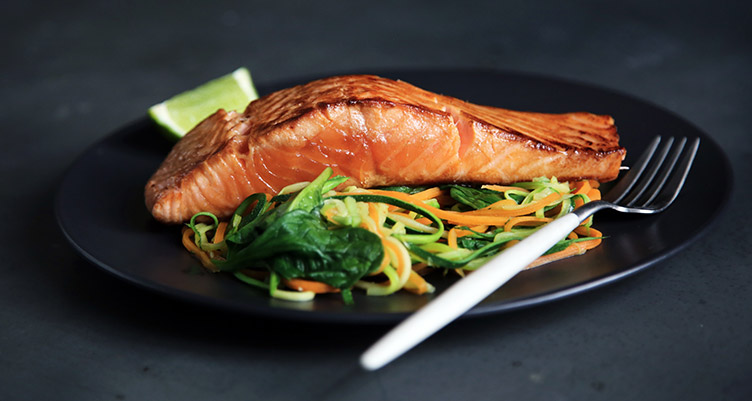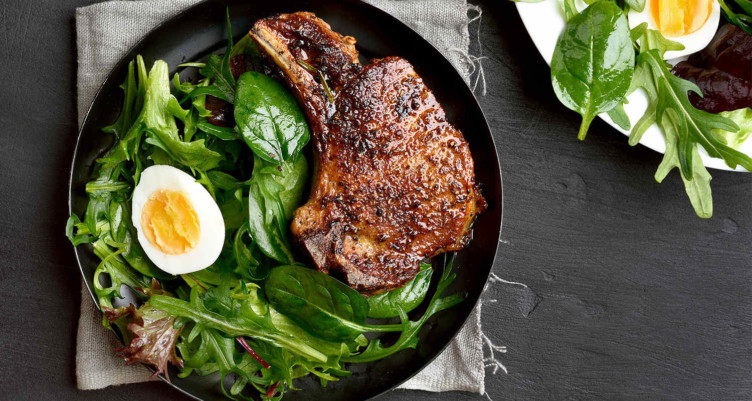The Truth About Metabolism-Boosting Foods, According to Experts

- You might have heard that certain foods, like chili peppers and coffee, can “boost” your metabolism. But what does that really mean, and how does it translate to weight management?
- Some foods have been shown to affect your metabolism, but not in the way you might expect.
- Here’s what the research shows about metabolism-boosting foods.
- Plus, get simple tips to take charge of your nutrition in 30 days.
Your metabolism is a big deal. It’s how your body turns food into energy, and that energy is what makes you, you. You burn more calories when you increase your metabolism, and you may have heard that certain foods, like chili peppers and caffeine, can kick your metabolism into high gear. But do they actually work? Before you brew up a habanero-green-tea concoction, here’s what the experts say about metabolism-boosting foods.
The skinny on metabolism-boosting foods

First, a disclaimer: Eating certain foods won’t radically shrink your waistline. “There are a few foods that make a minor increase in metabolism, but probably not enough that an individual would lose weight or even notice a difference,” says Melissa Morris, an ACSM certified exercise physiologist, ISSN certified nutritionist and writer for Exercise.com.
Hold up. What about all the stories you’ve heard that claim drinking green tea or eating spicy foods will burn ALL those extra calories? It’s true that research has shown that some foods can support your metabolism (and we’ll get into specifics later), but that doesn’t necessarily translate to fat loss, says Joey Kane, an ACE certified personal trainer and owner of Sub7 Fitness. “Fat loss is comprised of two succinct components: fat mobilization, and then fat oxidation. Without the occurrence of both processes, fat burning does not actually happen,” he says.
What does that mean? Fat mobilization is what happens when fats start to break down and are released into your bloodstream. Fat oxidation is what happens when your body turns those free-floating fats into energy. “Most foods that ‘boost’ metabolism, in actual research, only assist with the first of the two — fat mobilization,” says Kane.
So, while the foods below have been shown to affect metabolism, they’re not the end-all, be-all when it comes to your long-term health. “Exercise and more muscle mass are the factors we can control when it comes to increasing basal metabolic rate,” says Morris.
Related:
Foods that may support your metabolism
Caffeine

Caffeine isn’t just an awesome way to start your day — it may also increase your basal metabolic rate, the speed at which your body turns calories from food into energy to power your body.[1] [2] [3] Read more about what coffee does to your metabolism here.
According to Dr. Allen Conrad, a Certified Strength and Conditioning Specialist and owner of Montgomery County Chiropractic Center, “Caffeine can also increase the metabolic rate of fat oxidation,” although this study noted that normal-weight participants burned more fat than did participants who were overweight.
High-protein foods

Here’s another reason to make sure you’re getting enough protein: Protein has a higher thermic effect on the body than carbs or fats.[4] “This means it takes more calories to digest and absorb protein when compared to other macronutrients,” says Morris.
That doesn’t mean you should say “adios” to carbs and fat, though. When it’s time to eat, you still want to fill your plate with minimally processed, whole foods — namely, vegetables, quality fats and protein. Your body has to burn more calories to digest these complex, nutrient-dense foods, and you’ll feel satisfied and full — not hangry an hour later.
Get more energy and brain power with the Bulletproof 30 Day Upgrade Guide
Capsaicin

Capsaicin is what makes chili peppers spicy, and research suggests it can increase energy expenditure — which means spicy foods may support weight management by helping your body burn more calories.[5] [6] [7]
MCT oil

Medium chain triglycerides (MCTs) are fatty acids that naturally occur in coconut oil and palm oil. MCT oil is a supplement that you can add to pretty much anything, like smoothies and coffee. What does that have to do with your metabolism? MCT oil has been shown to increase thermogenesis (aka energy expenditure in the body) via increased fat-burning.[8] [9] [10] [11] Learn more about how MCTs work here.
How to actually support your metabolism

Real talk: There is no one-size-fits-all approach to living a healthy lifestyle, and it’s a great idea to talk to your doctor before you make any big changes to your diet or exercise routine. It’d be really convenient if a few specific foods could take care of your health and wellness goals, but in reality, your metabolism is the result of your overall lifestyle — including diet, exercise and sleep quality.
Looking for a simple way to start feeling your best? Check out the Bulletproof 30 Day Upgrade. It’s a free guide that will show you exactly how you can take control of your nutrition and wellness, day by day — so you can eat delicious food, start building healthy habits and feel like the rockstar you totally are.
Sign up for early access to sales, product launches, the latest Bulletproof news and more!



